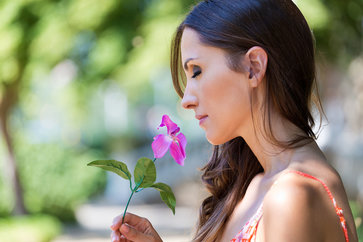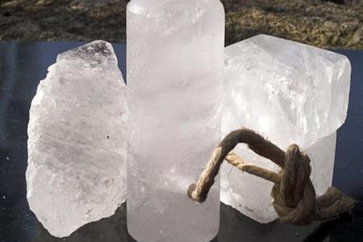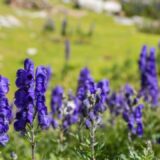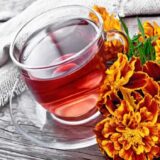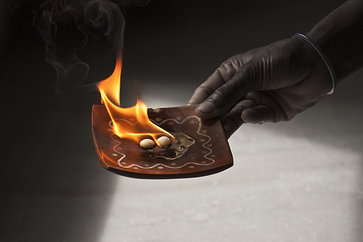Kaunch Beej: Benefits From Bodybuilding to Boosting Immunity
In the world of natural remedies and traditional medicine, Kaunch Beej, also known as Mucuna pruriens, has been gaining popularity for its numerous health benefits. This small, velvety seed is found in tropical regions and has been used for centuries in Ayurveda, the ancient Indian system of medicine.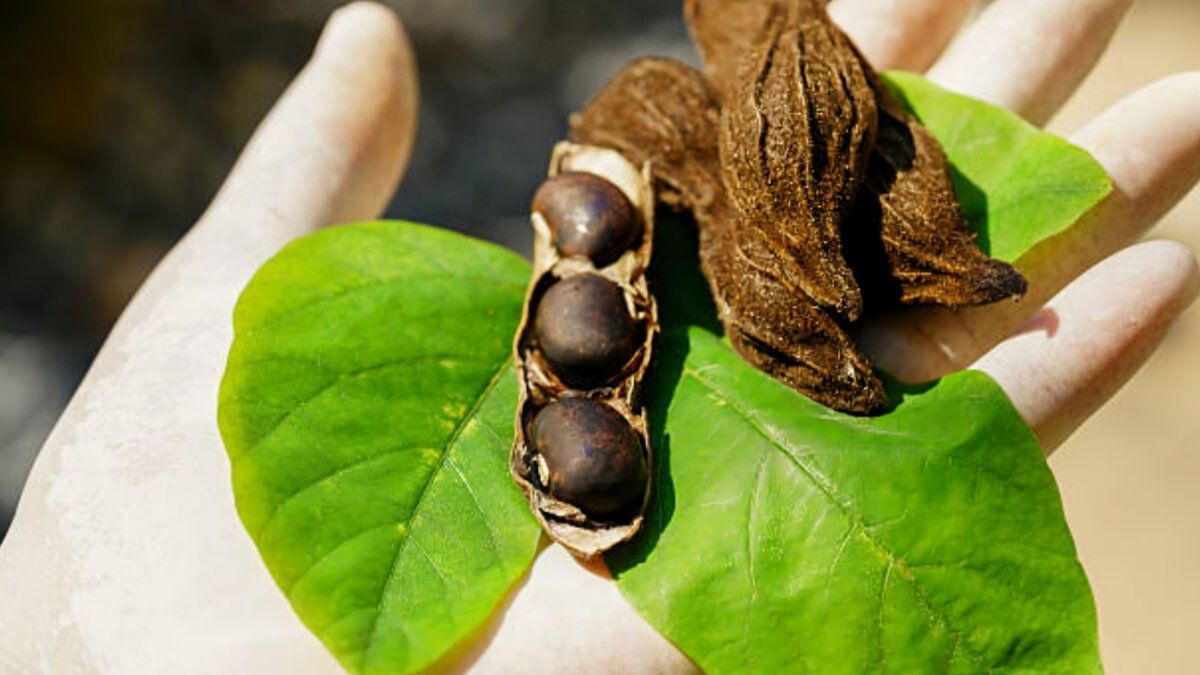
Recently, it has piqued the interest of modern researchers due to its potential in addressing various health concerns and enhancing overall well-being. In this article, we will explore the diverse applications and advantages of Kaunch Beej, unlocking the power of this nature’s treasure.
What is Kaunch Beej?
Kaunch Beej is a leguminous plant that belongs to the Fabaceae family. The plant bears pods, and inside these pods lie the beneficial seeds known as Kaunch Beej.
The seeds have a fuzzy texture, which gave rise to the nickname “velvet bean” or “cowhage.” They come in different colors, including black, gray, white, and brown.
The Rich Nutritional Profile of Kaunch Beej
The percentage composition of the nutritional value in Kaunch Beej (Mucuna pruriens) can vary slightly depending on factors such as growing conditions and processing methods. However, here is an approximate breakdown of its percentage composition:
1. Protein: Approximately 20-30% of Kaunch Beej’s composition is protein. This makes it a rich source of plant-based protein, beneficial for muscle repair and growth.
2. Carbohydrates: Kaunch Beej contains around 40-45% carbohydrates. These carbohydrates consist of dietary fiber, natural sugars, and starch, providing sustained energy and promoting digestive health.
3. Fats: The seeds contain about 10-15% fats, including both saturated and unsaturated fats. These healthy fats play a role in nutrient absorption and support various bodily functions.
4. Dietary Fiber: Kaunch Beej comprises approximately 10-15% dietary fiber, which aids in digestion, regulates bowel movements and promotes a feeling of fullness.
5. Minerals: Kaunch Beej is rich in essential minerals, with approximately 2-3% iron, magnesium, potassium, and zinc. These minerals contribute to proper nerve function, muscle health, and overall well-being.
6. Vitamins: The seeds contain small amounts of vitamins, including vitamin A, vitamin C, and vitamin E, providing antioxidant benefits and supporting immune function.
7. L-dopa: Kaunch Beej’s percentage of L-dopa is relatively low, ranging from 1-2%. However, even this small amount contributes to its potential neurological and mood-regulating benefits.
8. Phytonutrients: These seeds contain around 1-2% of various phytonutrients, such as flavonoids and alkaloids, which offer antioxidant and anti-inflammatory properties.
Health Benefits of Kaunch Beej
Kaunch Beej is a powerful natural supplement that has been gaining popularity in the fitness and wellness communities.
This small, velvety seed is rich in essential nutrients and compounds that offer numerous health benefits, below are some of them.
1. Kaunch Beej Benefits in Bodybuilding
For bodybuilders and fitness enthusiasts looking to enhance their muscle performance, Kaunch Beej can be a game-changer. The high protein content in these seeds provides the building blocks for muscle growth and repair.
Additionally, Kaunch Beej contains L-dopa, a precursor to dopamine, which plays a crucial role in regulating muscle movement and coordination.
By promoting optimal dopamine levels, Kaunch Beej can contribute to better muscle control during workouts and improve overall exercise performance.
2. Boosting Stamina and Endurance
Stamina and endurance are vital for achieving fitness goals, especially in endurance-based activities like long-distance running or intense workouts.
The rich nutritional profile of Kaunch Beej, including essential amino acids and minerals, helps combat fatigue and increase endurance.
Regular consumption of Kaunch Beej may lead to improved energy levels, allowing athletes to push their limits and achieve peak performance.
3. Supporting the Immune System
A robust immune system is essential for overall well-being and optimal physical performance. Kaunch Beej is packed with antioxidants, which help combat free radicals and reduce oxidative stress.
Moreover, the seed contains vitamin C, a powerful immune-boosting nutrient that strengthens the body’s defense mechanisms against infections and illnesses.
By incorporating Kaunch Beej into their diet, athletes can maintain a healthy immune system, reducing the risk of falling sick and hindering their training progress.
4. Natural Testosterone Boosting Properties
One of the most significant benefits of Kaunch Beej for male athletes is its potential to boost testosterone levels. Testosterone is a crucial hormone for muscle growth, strength, and overall athletic performance.
Some studies have shown that the L-dopa in Kaunch Beej can stimulate the production of testosterone in men.
However, it is essential to approach the use of Kaunch Beej as a testosterone booster with caution and consult a healthcare professional for personalized guidance.
5. Supporting Brain Health and Mood
Kaunch Beej is renowned for its remarkable benefits in supporting brain health and mood. With the presence of levodopa, it aids in dopamine production—an essential neurotransmitter for mood regulation.
Scientific studies suggest that Kaunch Beej may effectively manage mood swings and contribute to fostering a positive outlook on life.
6. Kaunch Beej Benefits for Male
In traditional medicine, Kaunch Beej has been used as an aphrodisiac to enhance male reproductive health. It may help increase testosterone levels, improve sperm quality, and address issues like erectile dysfunction.
These properties make it a natural option for those seeking support for fertility and virility.
7. Regulating Blood Sugar Levels
Kaunch Beej has been linked to potential benefits in regulating blood sugar levels, as suggested by various studies. Its ability to improve insulin sensitivity makes it a promising option for individuals managing diabetes or those at risk of developing the condition.
Including Kaunch Beej in the diet may offer valuable support in maintaining stable blood sugar levels and promoting overall well-being for individuals concerned about their glucose metabolism.
How to Incorporate Kaunch Beej into Your Daily Routine
Kaunch Beej Supplements: Kaunch Beej supplements are available in various forms, including capsules, powders, and extracts. When opting for supplements, it is essential to choose products from reputable brands to ensure quality and efficacy.
Culinary Uses: In traditional cuisine, Kaunch Beej has found its way into various dishes. Roasted Kaunch Beej seeds are ground into a fine powder and added to soups, stews, and curries. This not only enhances the flavor but also adds a nutritional boost to the meals.
How to Consume Kaunch Beej Powder?
To consume Kaunch Beej powder, here are some dosage guidelines:
1. Kaunch Beej Churna: Take ¼ to ½ teaspoon of Kaunch Beej Churna twice a day, or as directed by a healthcare professional.
2. Kaunch Beej Capsule: Consume 1 capsule of Kaunch Beej twice a day, or as prescribed by a doctor.
3. Kaunch Beej Tablet: Take 1 tablet of Kaunch Beej twice a day, or follow the doctor’s recommendations.
Note: It is essential to follow the recommended dosages to ensure the safe and effective usage of Kaunch Beej. Consult a healthcare professional before starting any supplement regimen.
Especially if you have underlying health conditions or are taking other medications. Adhering to the proper dosage will help you make the most of the potential benefits of Kaunch Beej while minimizing the risk of adverse effects.
How to Make Kaunch Beej?
Ingredients:
- 1 ½ cups of soaked and boiled Kaunch Beej seeds
- 1 medium-sized onion, finely chopped
- 1 small tomato, chopped into pieces
- 2 teaspoons of ginger garlic paste
- 2 teaspoons of mustard oil
- 1 teaspoon of cumin seeds
- Coriander leaves, for garnish
- 1 teaspoon of garam masala powder
- 1 teaspoon of amchur powder (dried mango powder)
- Salt, to taste
Method:
1. In a pan, heat the mustard oil over a high flame and temper the cumin seeds until they start to sputter.
2. Reduce the flame to low, add the chopped onions, and cook until they become translucent.
3. Now, add the chopped tomatoes, soaked and boiled Kaunch Beej seeds, ginger garlic paste, garam masala powder, amchur powder, and the required amount of salt. Mix well.
4. Let the mixture cook for about 10 minutes on low flame, allowing all the flavors to meld together.
5. Turn off the stove, garnish the dish with fresh coriander leaves, and serve hot with chapati or rice.
Enjoy this flavorful and nutritious Kaunch Beej seed preparation as a wholesome addition to your meal!
Precautions and Potential Side Effects
While Kaunch Beej (Mucuna pruriens) offers numerous health benefits, excessive consumption or improper usage may lead to certain side effects. Some potential side effects of Kaunch Beej include:
1. Digestive Issues: Consuming large amounts of Kaunch Beej may lead to digestive discomfort, such as bloating, gas, or stomach upset.
2. Nausea: In some individuals, Kaunch Beej may cause feelings of nausea, especially when taken in high doses.
3. Headache: Excessive intake of Kaunch Beej may result in headaches or migraines in sensitive individuals.
4. Sleep Disturbances: Some people may experience changes in sleep patterns, such as insomnia or disrupted sleep, when using Kaunch Beej.
5. Allergic Reactions: Individuals with known allergies to legumes may be at risk of experiencing allergic reactions to Kaunch Beej.
6. Interactions with Medications: Kaunch Beej may interact with certain medications, especially those affecting dopamine levels or related to diabetes management. It is essential to consult a healthcare professional before using Kaunch Beej alongside other medications.
7. Hormonal Imbalance: Due to its potential impact on testosterone levels, excessive use of Kaunch Beej may lead to hormonal imbalances, especially in men. It is crucial to use it responsibly and in moderation.
Note: To avoid or minimize potential side effects, it is essential to adhere to recommended dosages and seek advice from a healthcare professional.
Before incorporating Kaunch Beej into your routine, especially if you have existing medical conditions or are taking medications. Always choose high-quality, reputable products and discontinue use if any adverse reactions occur.
FAQs (Frequently Asked Questions) on Kaunch Beej
1. Is Kaunch Beej safe for everyone?
Kaunch Beej is generally safe for most people when used in moderation. However, pregnant and breastfeeding women and individuals with certain medical conditions should consult a healthcare professional before use.
2. Can Kaunch Beej be used as a treatment for Parkinson’s disease?
While Kaunch Beej contains levodopa, which is used in some Parkinson’s disease medications, it should not be considered a replacement for prescribed treatments. Consult a healthcare provider for appropriate management.
3. Are there any interactions with medications when using Kaunch Beej?
Yes, Kaunch Beej may interact with certain medications, especially those that affect dopamine levels. It is crucial to inform your healthcare provider about any supplements you are taking.
4. Can Kaunch Beej improve fertility in women as well?
Some studies suggest that Kaunch Beej may have benefits for female reproductive health, but more research is needed in this area.
5. Where can I purchase authentic Kaunch Beej supplements?
Authentic Kaunch Beej supplements can be purchased from reputable health stores, pharmacies, or online retailers. Always read customer reviews and product details before making a purchase.
6. What is Kaunch Beej used for?
Kaunch Beej, also known as Mucuna pruriens, is used for various health benefits, including supporting brain health, mood regulation, enhancing male reproductive health, and promoting physical stamina.
7. What are the benefits of Kaunch root?
Kaunch root, derived from Mucuna pruriens, offers advantages like improving libido, supporting male fertility, and potentially boosting testosterone levels.
8. How do you take Kaunch seed powder?
Kaunch seed powder can be taken by mixing it with water, milk, or incorporating it into smoothies or food recipes. Follow the recommended dosage provided by the manufacturer or consult a healthcare professional.
9. Can I take Shilajit and Kaunch Beej together?
Yes, Shilajit and Kaunch Beej can be taken together as they complement each other’s potential health benefits. However, it is advisable to consult a healthcare professional for personalized guidance.
10. What is the taste of Kaunch Beej powder?
Kaunch Beej powder typically has a slightly bitter and earthy taste.
11. What is the cost of Kaunch Beej?
The cost of Kaunch Beej may vary depending on the brand, quantity, and region. It is recommended to check with local suppliers or online retailers for current prices.
12. What is the price of black Kaunch Beej per kg?
The price of black Kaunch Beej per kilogram can vary based on factors such as location and availability. Birju mahavir 1 kg black kaunch seed – mucuna pruriens cost ₹387.
It is best to inquire with local sellers or markets for accurate pricing.
13. What is the English name of Kaunch Beej powder?
The English name of Kaunch Beej powder is “velvet bean” or “cowhage.”
14. What are the side effects of Kaunch seeds?
While Kaunch seeds offer numerous health benefits, excessive consumption may lead to digestive discomfort or mild side effects. Always follow recommended dosages and consult a healthcare professional if you have any concerns.
15. What is the price of Kaunch Beej powder 500gm?
The price of Kaunch Beej powder (500 grams) can vary based on brand and seller. Herbaveda- Pure kaunch beej (500g)By B Naturall cost ₹419, Kaunch Beej Powder, 500 GM By B Naturall cost ₹398, Patanjali Divya Shuddh Konch Beej Churna, 500 gm cost ₹275.
It is recommended to check with local stores or online retailers for the most up-to-date pricing.
16. Can I take ashwagandha and Kaunch Beej together?
Yes, ashwagandha and Kaunch Beej can be taken together as they have different properties and may complement each other’s effects. However, consulting a healthcare professional is advisable to determine suitable dosages.
17. What vitamins are in Kaunch Beej?
Kaunch Beej contains various vitamins, including vitamin A, vitamin C, and vitamin E, providing antioxidant benefits and supporting immune function.
18. Is Kaunch Beej good for vertigo?
Some studies suggest that Kaunch Beej may have benefits for vertigo due to its potential to support brain health and neurological function. However, more research is needed in this area.
19. What are the ingredients in Kaunch Pak?
Kaunch Pak typically contains Kaunch Beej along with other ingredients used in traditional Ayurvedic formulations. The specific ingredients can vary based on the brand and intended purpose of the product.
20. Difference between White and Black Kaunch Beej?
The main difference between white and black Kaunch Beej lies in their appearance. White Kaunch Beej has a pale color, while black Kaunch Beej is darker.
However, both varieties belong to the Mucuna pruriens species and offer similar health benefits. The choice between the two can be based on personal preference or availability.
21. How to Consume Kaunch Beej Powder?
Kaunch Beej powder can be consumed in various ways. Mix the recommended dosage of the powder with water, milk, or your favorite beverage.
Alternatively, add it to smoothies, juices, or sprinkle it over foods like yogurt or salads. Start with a small dosage and gradually increase as needed, following the instructions provided by the manufacturer or consulting a healthcare professional.
22. Does Kaunch Beej Increase Testosterone?
Yes, Kaunch Beej has been associated with potential testosterone-boosting effects. It contains levodopa, a precursor to dopamine, which may stimulate the production of testosterone.
As a result, Kaunch Beej is often used to support male reproductive health, enhance fertility, and improve muscle performance.
However, individual responses may vary, and it is essential to use it responsibly and seek advice from a healthcare professional before considering it as a testosterone-boosting supplement.
Kaunch Beej, nature’s treasure, holds the potential to address various health concerns and promote overall well-being. From supporting brain health and mood to enhancing male reproductive health and physical stamina, this small seed packs a powerful punch of nutrients and beneficial compounds.


